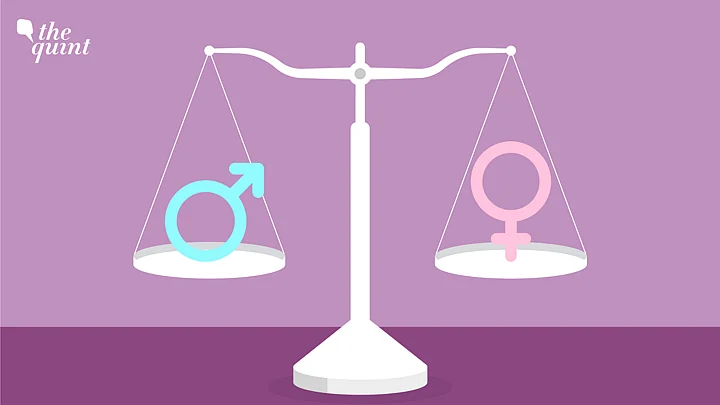India has been ranked 135 out of 146 countries in the World Economic Forum's Gender Gap Report 2022. The country has scored 0.629, on a scale of 0 to 1, which is its seventh-highest score in the last 16 years.
"India registers the most significant and positive change to its performance on Economic Participation and Opportunity," the WEF report stated.
However, the country has the lowest ranking on the Health and Survival subindex and has registered a declining score in political empowerment.
The Global Gender Gap Index tracks the world's progress toward gender parity in four key aspects: political empowerment, health and survival, educational attainment, and economic participation and opportunity.
Iceland has topped the list becoming the most gender equal country for the twelfth time in a row, by closing more than 90% of its gender gap.
Six out of the top 10 spots have been bagged by European nations like Iceland (1), Finland (2), Norway (3), Sweden (5), Ireland (9), and Germany (10).
The four other countries to round out the top ten are New Zealand (4), Rwanda (6), Nicaragua (7), and Namibia (8).
India at 135
India’s global gender gap score has oscillated between 0.593 and 0.683 since the index was first compiled in 2006.
The country had secured a rank of 140 out of 156 countries with a score of 0.625 last year.
According to the WEF report, India's degree of achievement has a significant impact on regional rankings given that there are roughly 662 million females in the country.
The report noted that the country has shown improvement, though "small and insignificant," in factors like educational attainment, although labour force participation shrunk for both men and women since 2021.
The percentage of female legislators, senior officials, and managers rose from 14.6 to 17.6 per cent, and the percentage of female professionals and technicians went from 29.2 to 32.9 per cent.
"However, Political Empowerment records a declining score (-0.010) due to the diminishing share of years women have served as head of state for the past 50 years," the report noted.
The gender parity score for estimated earned income has shown improvement. However, it is to be noted that the values have diminished. The improvement in score is due to the fact that they have declined more for men.
India has the lowest ranking on the health and survival subindex, coming up at position 146 and is one of five nations with gender inequalities greater than 5 percent. The other four are China, Pakistan, Azerbaijan, and Qatar.
The 'Shecession'
WEF noted that the progress toward gender parity has been halted and even reversed due to the COVID-19 pandemic.
"Women have borne the brunt of the recession, widely dubbed the 'shecession', largely because they work in sectors that were most impacted, such as retail and hospitality," it stated.
"The pandemic recession has hit women harder than the 2009 financial crisis impacted male workers," Anne Richards, Chief Executive Officer, Fidelity International, said at the WEF discussion.
The report further added that it will now take "132 years" to close the gender gap globally.
"If progress towards gender parity proceeds at the same pace observed between the 2006 and 2022 editions, the overall global gender gap is projected to close in 132 years," it stated.
Amina Mohammed, Deputy Secretary-General, United Nations speaking at the WEF panel noted that ensuring equitable leadership and participation for women and increasing their involvement in decision-making would provide better outcomes.
(At The Quint, we question everything. Play an active role in shaping our journalism by becoming a member today.)
